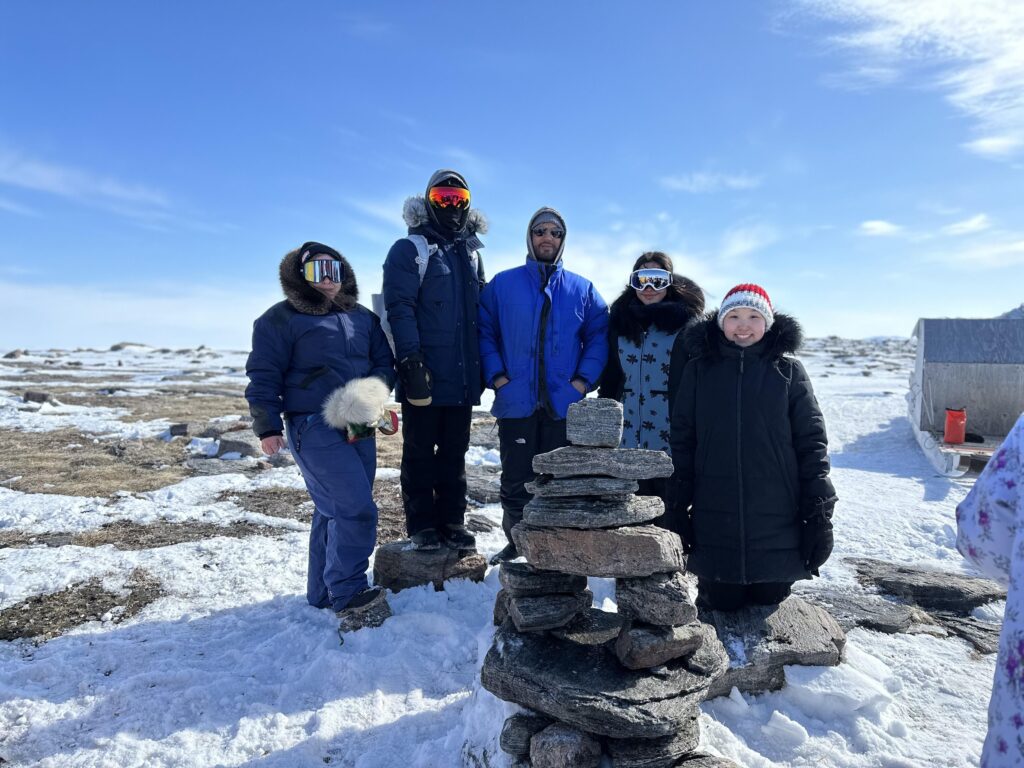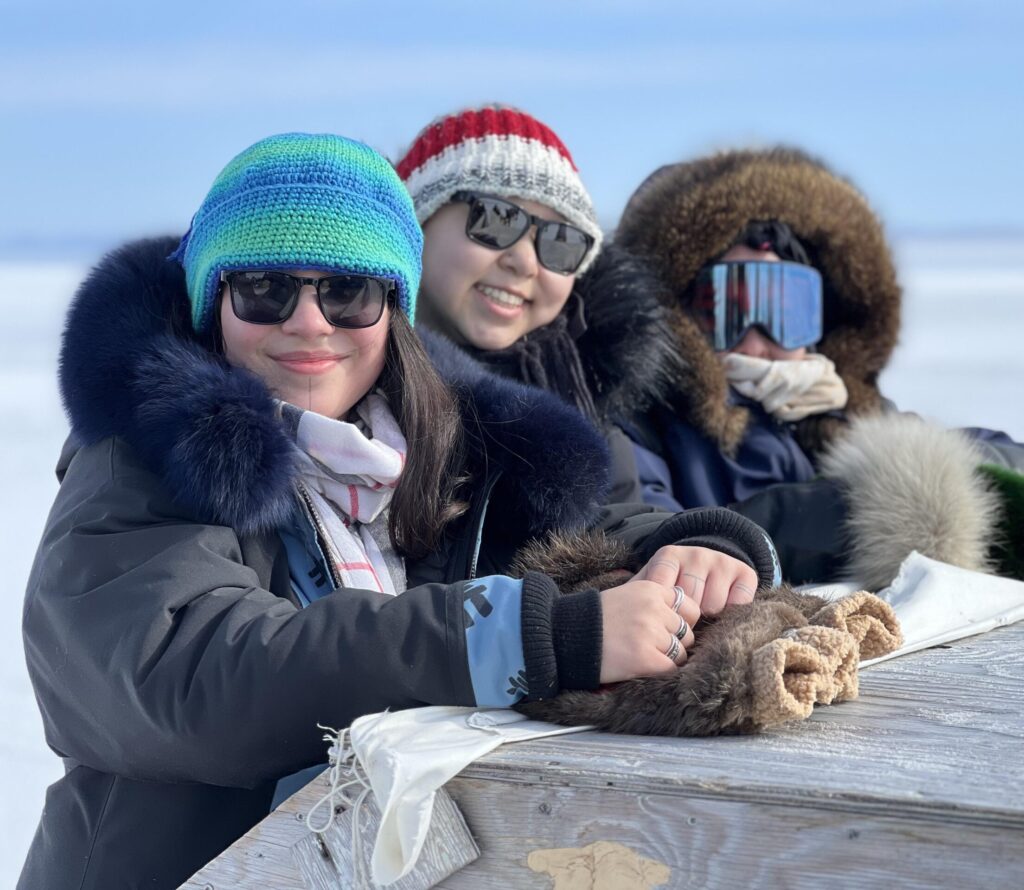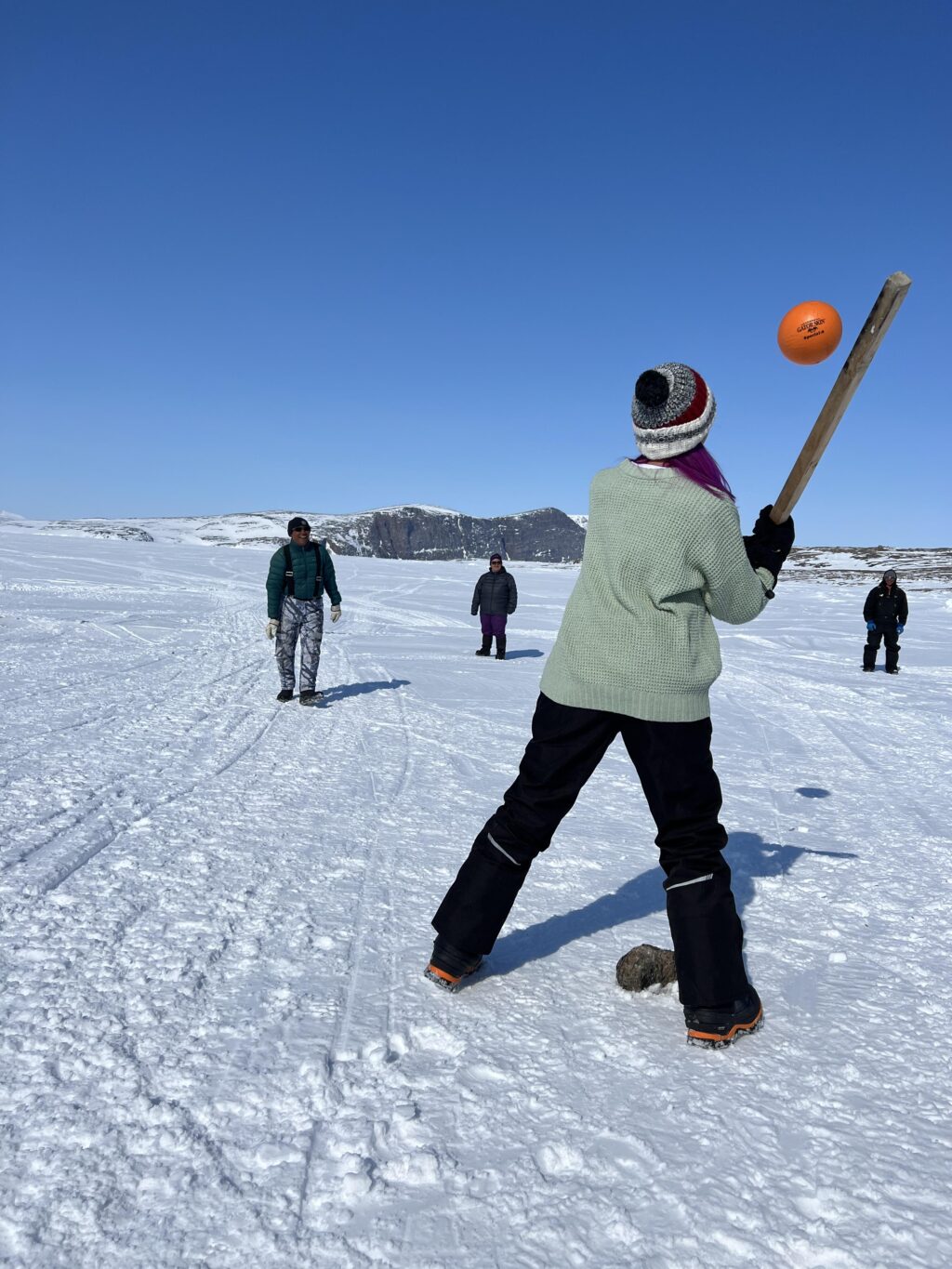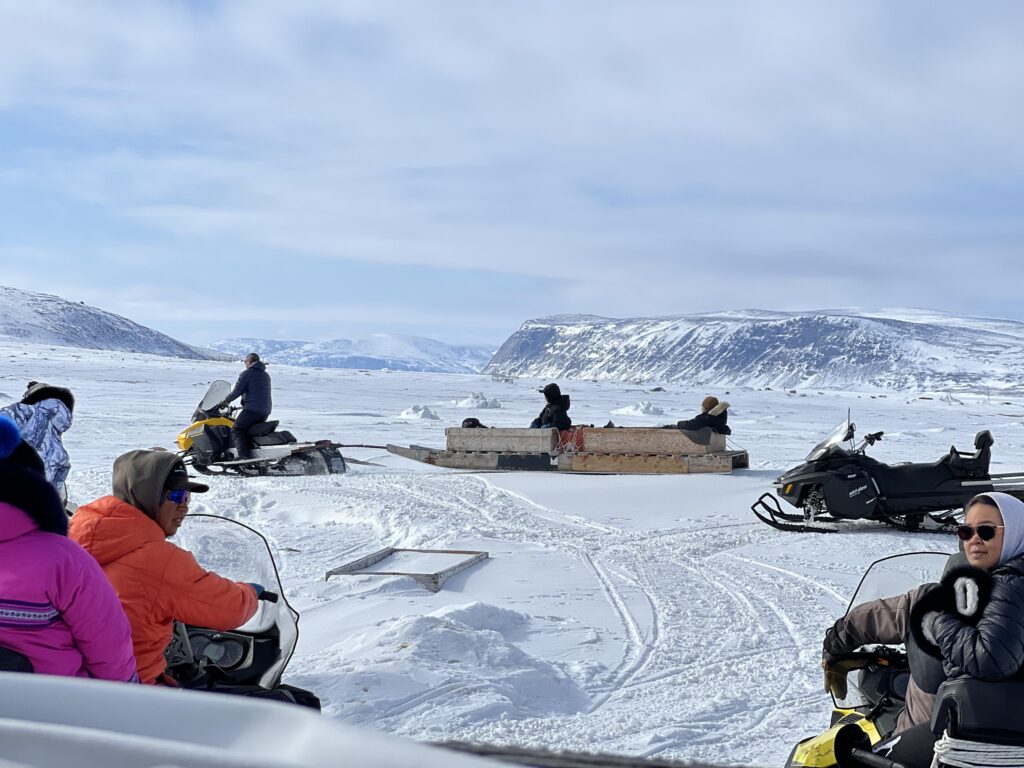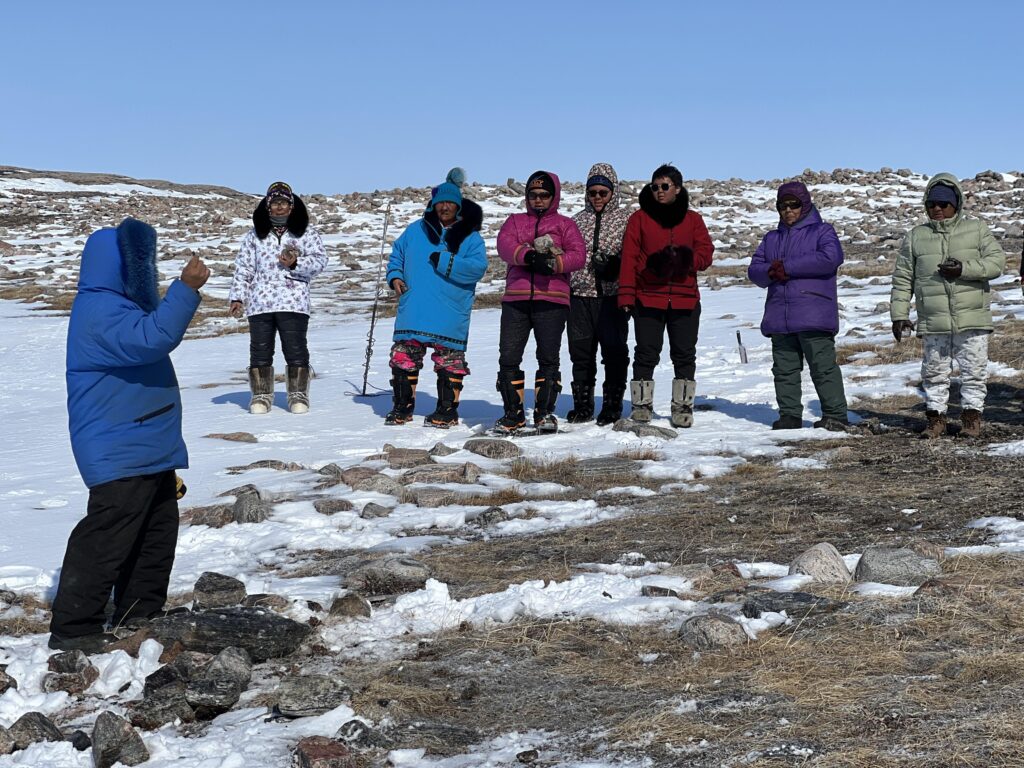Nunavut Land-based Learning Opportunity Life-Changing for Southern-Based Inuit Students
By: Linda Hartwell
In May, six Inuit students and three team members from Carleton’s Centre for Indigenous Support and Community Engagement traveled to Nunavut to participate in a land-based learning opportunity hosted by Nunavut Arctic College. The week-long experience was facilitated by Inuit Elders, Knowledge Keepers, and community members at the Piqqusilirivvik Cultural Centre in the community of Clyde River.
Students spent days out on the ice learning about Inuit storytelling, arctic survival skills and Inuit pedagogy. They also participated in seal hunting, fishing, ice-recognition, building igloo and preparing country foods.
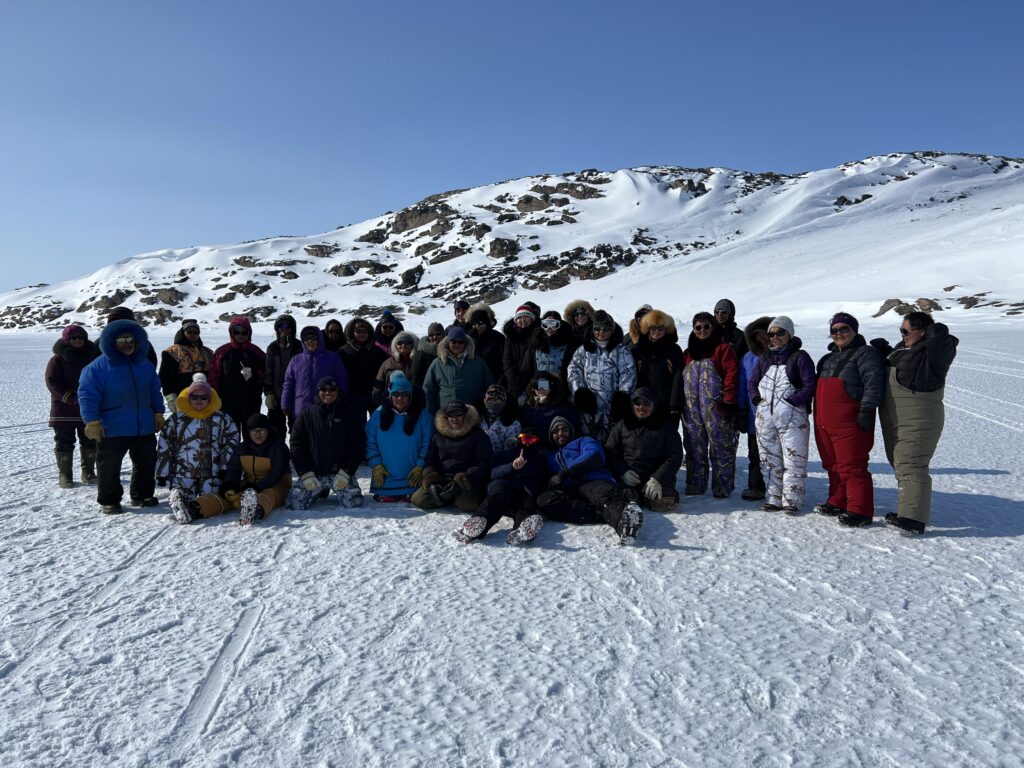
“The exchange helped me understand that I am Inuk no matter where I live,” said Irniq Lecompte, a fourth year Law and Legal Studies student with a minor in Indigenous Studies. “When I’m in the North I feel at home.”
Addressing Kinàmàgawin’s nineteenth call to action, the program’s origins began approximately four years ago during the report’s consultation process. “Part of what we heard from Inuit students was that we needed to better support Inuit learners who were from northern communities,” said Benny Michaud, Director of the Carleton Centre for Indigenous Support and Community Engagement. “In light of this, we spent several years developing a relationship with Nunavut Arctic College along with other northern partners and the idea for this exchange emerged. Not only will students obtain academic credit for participating in the exchange, it gives them the chance to think about future employment possibilities in Nunavut.”
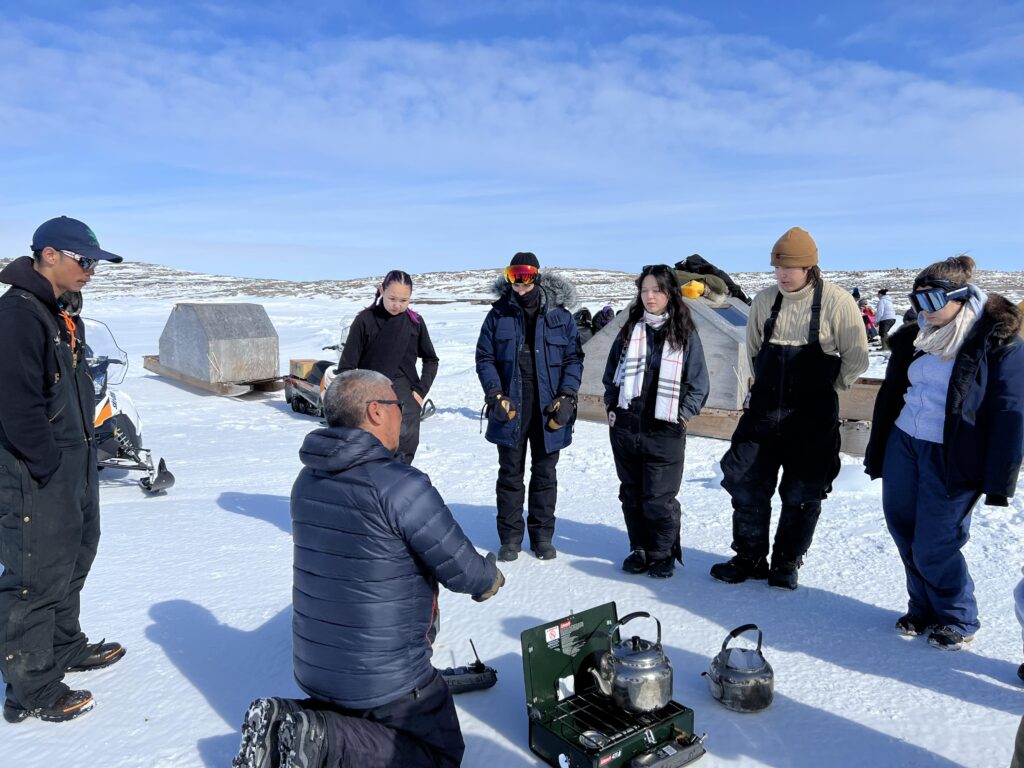
The exchange program provides southern-based Inuit students and community members with an opportunity to travel to Clyde River to participate in land-based activities in ways that they may not otherwise be able to connect culturally.
“I have always lived in the South, so I feel I have missed out on so much, especially when listening to my family members tell stories of hunting trips and living in the North in general,” said Lecompte. “This exchange taught me that despite my upbringing, I could very easily integrate into living in a small town like Clyde River.”
“On the first day I remember going to collect ice from an iceberg that we were going to use to get fresh water every day while out on the land. The iceberg was big and a beautiful colour of blue, “recalls Lecompte. “While we were there, our cultural trip leader showed us how to make fresh water with nothing but fire and the snow around us by creating a funnel system with the fire and ash as a filtration device.”
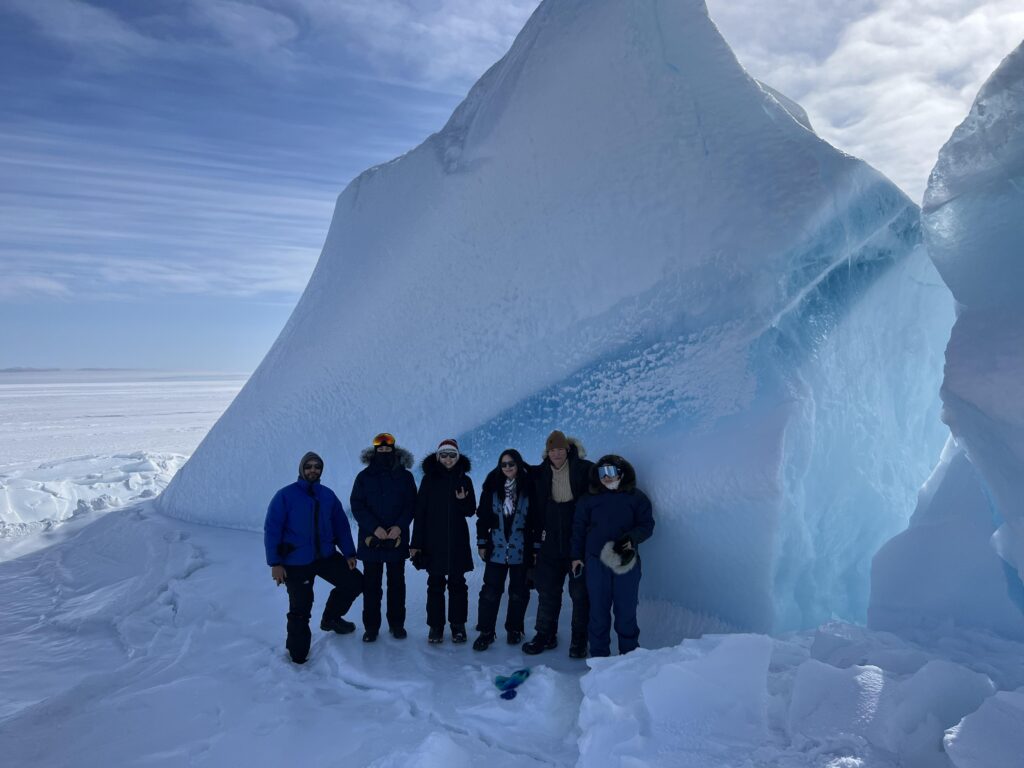
Carleton is currently preparing to host graduating Nunavut Artic College students in Ottawa, where they’ll be introduced to campus life, the city, and opportunities they might be interested in at the university.
“We want Carleton to be seen as the best choice for Inuit coming south for post-secondary education as we have the highest proportion of Inuit in Ottawa outside of the North,” said Michaud. “We are uniquely positioned to be a place where Inuit can come.”
The Centre for Indigenous Support and Community Engagement is looking to secure sustainable funding in hopes of continuing to offer this program every year.
“It is important to offer land-based learning opportunities to urban Inuit who may not have experienced the ways of life of their fellow Inuit in the North,” expressed Lecompte. “It is a way for Inuit to reconnect with their homelands and people and realize that we are part of a greater community.”
